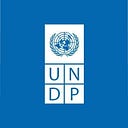A hidden environmental danger lurks in Turkey
by Omer Kavuk
Did you know that hundreds of tons of chemicals, which may cause cancer upon contact or inhalation, are kept in a storage site in Kocaeli, Turkey — only a 2 hour drive from Istanbul?
If not intercepted, they can cause grave dangers to people in Turkey and around the world, and even a potential ecological crisis.
They are no longer produced or used anywhere in the world. But what’s scary is that they are very good at traveling long distances and can spread over areas so large that they may end up resurfacing at the poles.
These chemicals? They’re called Persistent Organic Pollutants, or POPs.
ONCE A HERO, NOW A PUBLIC ENEMY
What exactly are POPs? One example, DDT (Dichloro-Diphenyl-Trichloroethane) earned the Nobel Prize for its inventor in 1948 for its strong toxic impact on pests. It saved thousands of lives in an African anti-malaria drive. Indeed, DDT was even sold as a “cure-all powder” for years in Turkey. Only later did the world realize its dangers; DDT was linked to breast and other cancers, male infertility, miscarriages and low birth weight, developmental problems, and nervous system and liver damage.
The rapid industrialization in Turkey after the 1950s — particularly the development of iron-steel, cement, and chemical industries around Kocaeli — was accompanied by an intensive production of POPs. Over a relatively long period of time, the world came to understand that these chemicals were highly harmful. It was revealed that they were not only carcinogenic, but also adversely impacted reproduction and were being transferred to later generations through placenta and mothers’ milk.
To make matter worse, POP chemicals survive for many years before decomposing. The Stockholm Convention, hailed as an example in international standard setting, was adopted in 2001 to eliminate or restrict the production and use of persistent organic pollutants. With that, the world set out to eradicate these man-made chemicals off the earth. Turkey ratified it in 2001.
THE STATE OF TURKEY
HCH (Hexa-Chlorocyclo-Hexane), the most harmful of POPs and a pesticide, were used extensively in the chemicals industry in Turkey until their prohibition in the 1980s. Following the prohibition, however, part of the stocks remained in closed storage for years due to a prolonged process of bankruptcy and plant takeovers. Now the very existence of such waste in Kocaeli, constituting one of the largest single-location POP stocks in the world, poses a globally significant problem.
A LOCAL SOLUTION TO A GLOBAL PROBLEM
Disposal of the POP stock in the region is far more complicated and expensive than one can imagine. Not all POPs can be treated and disposed of the same way and destroying them must be done carefully to avoid additional contamination risks to the environment around the storage sites. The new owner of this company which produced these pollutants made efforts to dispose of them by his own means, but it is was too costly and required certain expertise. By this point, though, the danger is far beyond being a problem of just one owner, or even of one country.
But as a signatory to the Stockholm Convention, Turkey gained access to financial assistance for disposing of the chemicals as part of international obligations. Those efforts received a boost when UNDP and the Ministry of Environment and Urbanization designed an elimination program, supported by the Global Environment Facility (GEF).
In early 2016, the initial work started to dispose of the existing POPs stocks in the region in accordance with international standards and in compliance with environmental requirements. The initial steps established the baseline on the site, identifying the waste population, concentration. and net quantity.
The site contains approximately 2,200 tons of POPs stocks and 500 tons of POP-contaminated waste.
Now, works are underway to plan the disposal operations, which should begin in mid-2017. The environmental impact assessment and plans for occupational safety and health plans have been prepared.
An assessment on the chemicals’ social impact, soon to be completed, will determine what heath impacts the local communities have faced.
With everyone working together –Turkey’s Ministry of Environment and Urbanization, local authorities, and the plant owner — UNDP Turkey can move forward to ensure the clearance of the site with minimal impact on human health and environment.
Soon, the hidden dangers of the past will no longer be a problem for those in Kocaeli and the world can look to Kocaeli instead as an example for the future.
If you enjoyed this piece, remember to click the heart below and recommend the story to others.
